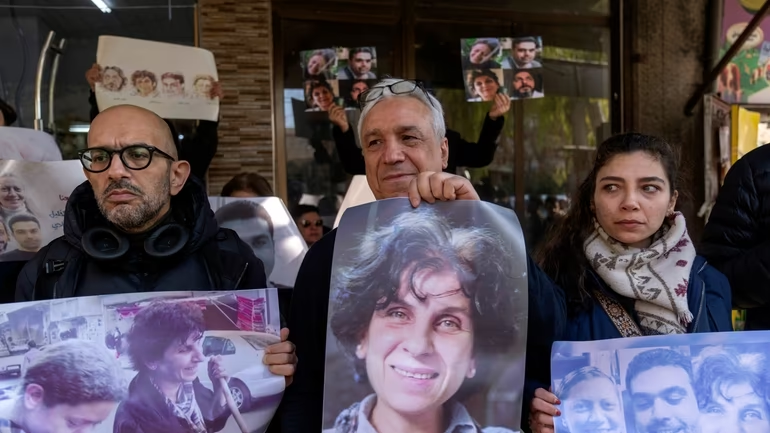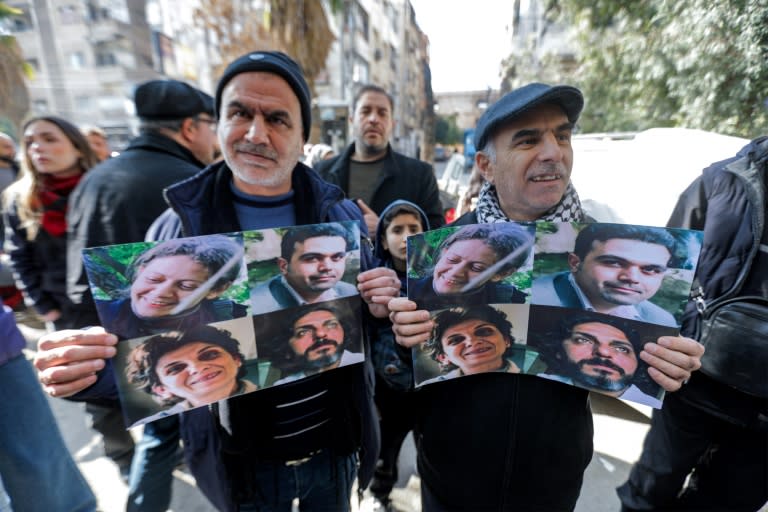A few dozen protesters gathered in the Syrian city of Douma on Wednesday, seeking answers about the fate of four prominent activists abducted over a decade ago.
Holding photographs of the missing, demonstrators urged Syria‘s new rulers—the Islamist-led rebels who seized power last month—to investigate their disappearance.
“We demand the whole truth about two women and two men taken from here 11 years and 22 days ago,” said activist Yassin al-Haj Saleh, whose wife, Samira Khalil, was among those abducted.
In December 2013, Khalil, Razan Zeitouneh, Wael Hamada, and Nazem al-Hammadi were kidnapped by unidentified gunmen from the office of a human rights group they jointly operated in the then rebel-held city near Damascus.

The four had played key roles in the 2011 uprising against Bashar al-Assad and documented abuses by Jaish al-Islam, an Islamist rebel group controlling Douma at the time.
No one has claimed responsibility for their abduction, and they remain missing.
Many Douma residents accuse Jaish al-Islam, though the group denies involvement.
“We have sufficient evidence implicating Jaish al-Islam and names of suspects we want investigated,” Haj Saleh stated, calling for “perpetrators to be tried in Syrian courts.”
The fate of tens of thousands who disappeared under Assad’s regime remains a pressing issue for Syria’s interim rulers after 13 years of civil war, which claimed over 500,000 lives.
Khalil, jailed from 1987 to 1991 for opposing the Assad regime, was a prominent activist. Her husband, a renowned human rights advocate, was also detained in 1980 and later exiled.
Protests like this were unimaginable in Douma just a month ago. The city, a former rebel stronghold, still bears scars of the conflict, with bombed-out buildings a stark reminder of the war.
During the civil war, all sides faced accusations of abductions and summary executions.

